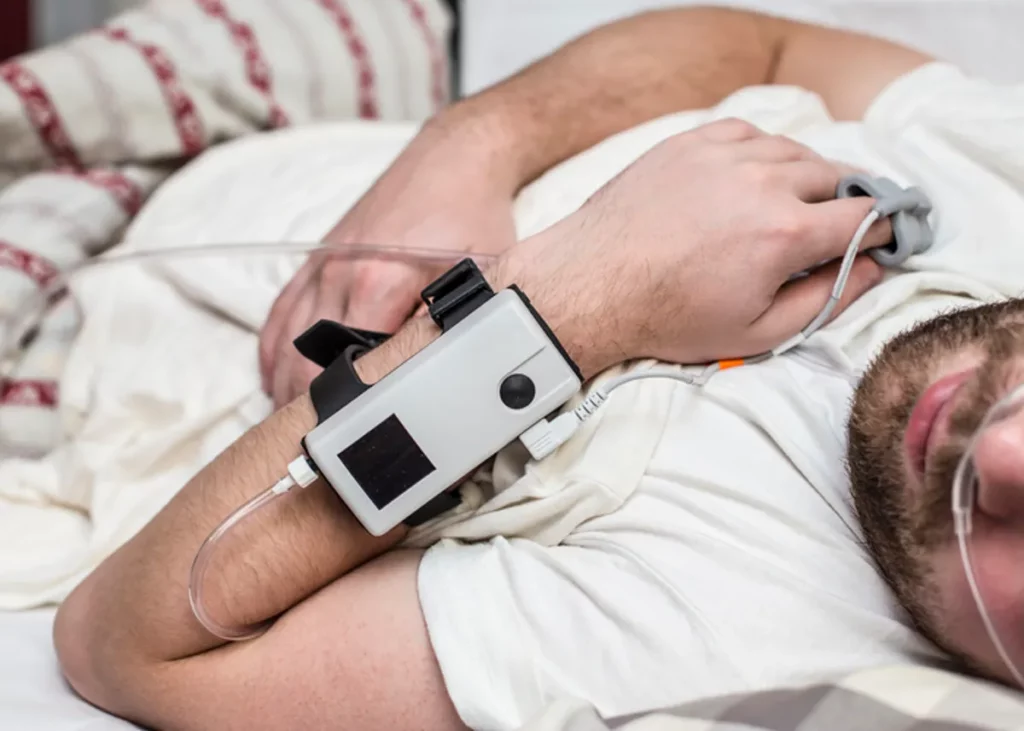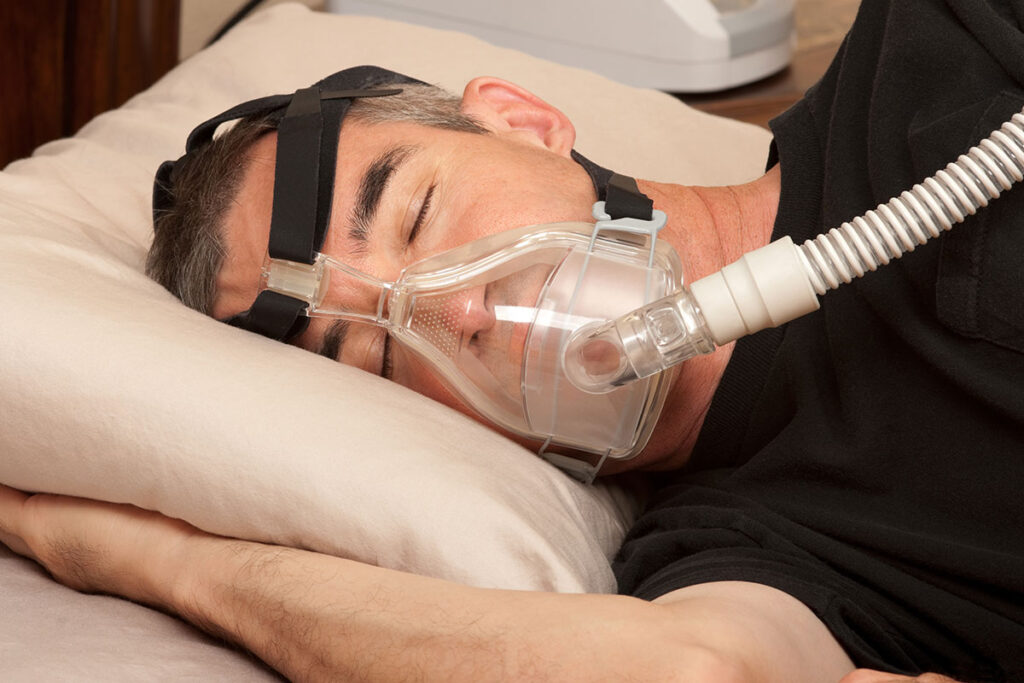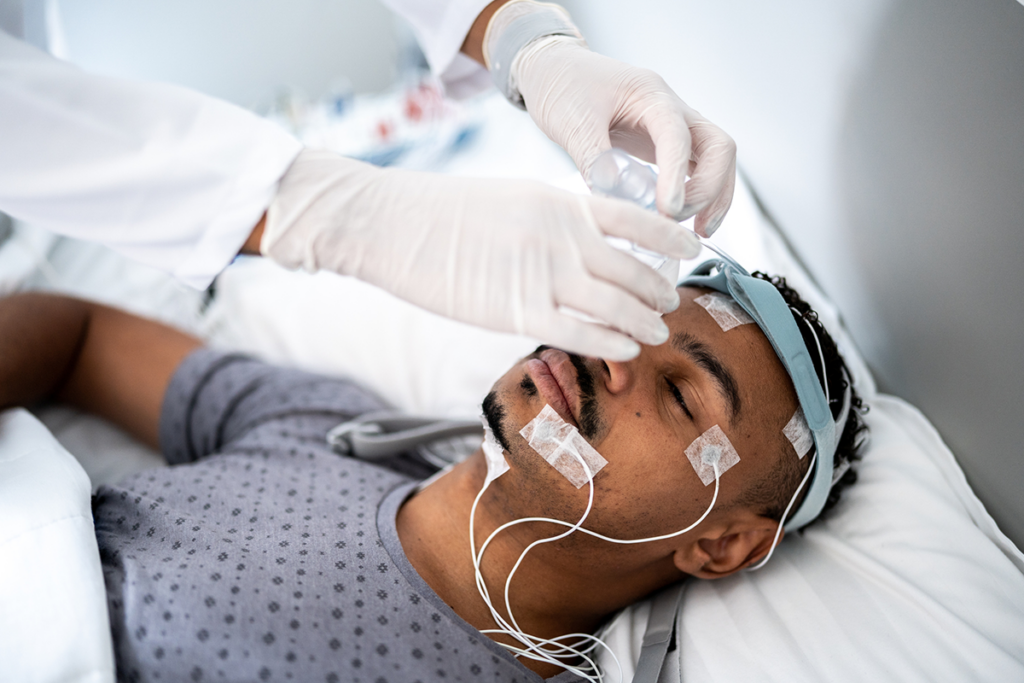If you suspect that you or a loved one may be suffering from sleep apnea, it is essential to seek proper diagnosis and treatment. In Brisbane, there are various sleep apnea tests available to help determine the presence and severity of this sleep disorder. In this detailed guide, we will explore what sleep apnea is, its symptoms and risks, the importance of sleep apnea testing, the types of tests available, how to prepare for your test, and how to interpret the test results. By providing comprehensive information, we aim to help you navigate the process of sleep apnea testing in Brisbane and take the necessary steps towards better sleep and improved overall health.
Understanding Sleep Apnea
Sleep apnea is a sleep disorder characterized by pauses in breathing during sleep. These pauses, known as apneas, can last for a few seconds to several minutes and can occur multiple times throughout the night. There are three main types of sleep apnea: obstructive sleep apnea (OSA), central sleep apnea (CSA), and complex sleep apnea syndrome (combination of OSA and CSA).
In conclusion, if you suspect that you or someone you know may be suffering from sleep apnea, seeking sleep apnea test Brisbane can provide the necessary information for diagnosis and treatment planning. By understanding the different types of sleep apnea tests, preparing properly for the test, and interpreting the results, individuals can take proactive steps towards managing their sleep apnea and improving their overall well-being. Sleep apnea testing plays a crucial role in identifying and addressing sleep apnea, enabling individuals to receive appropriate treatment and prevent potential long-term health complications.
Obstructive sleep apnea (OSA) is the most common type of sleep apnea and occurs when the muscles in the throat relax, causing the airway to narrow or close completely. This can lead to loud snoring, choking, or gasping for air during sleep.
Central sleep apnea (CSA) is less common and involves the central nervous system failing to send the proper signals to the muscles that control breathing. This results in pauses in breathing without any physical obstruction in the airway. Complex sleep apnea syndrome is a combination of both OSA and CSA, making it a more challenging condition to treat.
What is Sleep Apnea?
Obstructive sleep apnea (OSA) is the most common type of sleep apnea and occurs when the muscles in the throat relax, causing the airway to narrow or close completely. This can lead to loud snoring, choking, or gasping for air during sleep.
It is important to note that sleep apnea is more than just a nuisance during sleep. The repetitive drops in oxygen levels and fragmented sleep patterns associated with sleep apnea can have serious consequences on overall health and well-being. Individuals with untreated sleep apnea may experience an increased risk of developing cardiovascular problems, such as irregular heartbeats, heart attacks, and even sudden cardiac death.

Symptoms and Risks of Sleep Apnea
Common symptoms of sleep apnea include excessive daytime sleepiness, loud snoring, restless sleep, morning headaches, difficulty concentrating, and mood changes. If left untreated, sleep apnea can increase the risk of serious health complications such as high blood pressure, heart disease, stroke, diabetes, and depression.
Furthermore, the impact of sleep apnea extends beyond physical health. The chronic sleep deprivation caused by untreated sleep apnea can lead to cognitive impairment, memory problems, and decreased quality of life. Relationships may also suffer as the fatigue and irritability associated with sleep apnea can strain interpersonal connections.
The Importance of Sleep Apnea Testing
Early detection and diagnosis of sleep apnea are crucial for effective treatment and prevention of serious health complications. Sleep apnea testing helps healthcare professionals evaluate the severity of the condition and develop personalized treatment plans.
Sleep apnea is a common sleep disorder characterized by pauses in breathing or shallow breaths during sleep. These interruptions can lead to fragmented sleep, daytime fatigue, and other symptoms that significantly impact an individual’s well-being. By undergoing sleep apnea testing, individuals can gain insight into their sleep patterns and receive a proper diagnosis from healthcare professionals specializing in sleep medicine.
Early Detection and Diagnosis
Identifying sleep apnea early allows for prompt intervention, which can significantly improve symptoms and quality of life. Sleep apnea testing provides valuable information about the frequency and severity of apneas, enabling healthcare professionals to determine the most appropriate treatment options.
During a sleep apnea test, also known as a polysomnography, various parameters such as airflow, oxygen levels, and brain activity are monitored to assess the presence and severity of sleep apnea. This comprehensive evaluation helps healthcare providers tailor treatment plans to address the specific needs of each individual, promoting better outcomes and long-term management of the condition. Read more about oxygen at https://www.utoledo.edu/nsm/ic/elements/oxygen.html
Preventing Serious Health Complications
Undiagnosed and untreated sleep apnea can lead to long-term health problems. By undergoing sleep apnea testing, individuals can take proactive steps towards managing their condition and reducing the potential risks associated with untreated sleep apnea.
Research has shown that untreated sleep apnea is linked to an increased risk of cardiovascular diseases, such as hypertension, heart disease, and stroke. Additionally, the chronic sleep deprivation resulting from untreated sleep apnea can impair cognitive function, mood regulation, and overall quality of life. By prioritizing sleep apnea testing and subsequent treatment, individuals can mitigate these risks and improve their overall health and well-being.
Types of Sleep Apnea Tests
There are two main types of sleep apnea tests available in Brisbane: home sleep tests and in-lab sleep tests. The choice of test depends on factors such as the suspected severity of sleep apnea, individual preferences, and the recommendation of the healthcare provider.
When considering the different types of sleep apnea tests, it’s important to understand the nuances of each option to make an informed decision about which test may be most suitable for your specific situation.
To read more about test click here.
Home Sleep Tests
Home sleep tests are portable devices that allow individuals to monitor their sleep in the comfort of their own homes. These tests typically involve wearing a device that measures breathing patterns, oxygen levels, heart rate, and other relevant data during sleep. Home sleep tests provide convenient, cost-effective, and non-invasive options for diagnosing uncomplicated cases of sleep apnea.
One of the key advantages of home sleep tests is the ability to capture data in a familiar environment, potentially leading to more accurate results as individuals are more likely to sleep naturally without the presence of unfamiliar monitoring equipment.
In-lab Sleep Tests
In-lab sleep tests involve overnight monitoring in a specialized sleep center. Healthcare professionals observe individuals while they sleep and collect data on various parameters, including brain activity, eye movements, respiratory patterns, and leg movements. In-lab sleep tests are recommended for complex or severe cases of sleep apnea where additional monitoring and evaluation are necessary.
Being in a controlled environment during an in-lab sleep test allows for comprehensive monitoring and evaluation by trained sleep technicians and healthcare professionals. This intensive level of observation can provide detailed insights into sleep patterns and potential issues that may not be as easily detected in a home setting.
Preparing for Your Sleep Apnea Test
Before undergoing a sleep apnea test, it is important to be well-prepared. This includes understanding what to expect during the test and following certain guidelines to ensure accurate results.
It is also helpful to keep a sleep diary leading up to the test, documenting your sleep patterns, any symptoms you experience, and your daily activities. This information can provide valuable insights for the healthcare provider conducting the test.
What to Expect During the Test
During a sleep apnea test, you will be asked to spend the night at a sleep center or use a portable device at home. The sleep technician will explain the process, attach sensors and monitors to your body, and provide instructions for the test. It is essential to follow these instructions carefully to ensure accurate data collection.
Additionally, you may be asked to refrain from certain medications or activities that could interfere with the test results. It is important to communicate openly with your healthcare provider about any medications you are taking or any health conditions you have that may impact the test. Click here to read more about communicate.
Tips for a Successful Sleep Test
To ensure the success of your sleep apnea test, there are several tips you can follow. These include maintaining your regular sleep schedule, avoiding caffeine and alcohol before bedtime, keeping your bedroom comfortable and free from distractions, and adhering to any specific guidelines provided by your healthcare provider.
Furthermore, creating a relaxing bedtime routine can help prepare your body for sleep and improve the quality of data collected during the test. Engaging in calming activities such as reading a book, taking a warm bath, or practicing deep breathing exercises can signal to your body that it is time to wind down and prepare for restful sleep.

Interpreting Your Sleep Apnea Test Results
Once your sleep apnea test is complete, the collected data will be analyzed by a sleep specialist. The results of the test will provide valuable information that can help determine the severity of your sleep apnea and guide treatment decisions.
Understanding Your Test Scores
The sleep apnea test scores are used to quantify the frequency and severity of apneas and hypopneas (partial blockages of the airway) experienced during sleep. These scores help classify the severity of sleep apnea as mild, moderate, or severe. Your healthcare provider will review and explain the test scores to you in detail.
Next Steps After Diagnosis
After the sleep apnea test results are interpreted, your healthcare provider will discuss the next steps in your treatment journey. This may include treatment options such as continuous positive airway pressure (CPAP) therapy, oral appliances, lifestyle modifications, or surgery. It is crucial to follow your healthcare provider’s recommendations and maintain regular follow-up appointments to ensure optimal management of your sleep apnea.
Furthermore, understanding the potential causes of sleep apnea can provide additional insight into your condition. Sleep apnea can be caused by factors such as obesity, smoking, alcohol consumption, nasal congestion, and certain medical conditions. By addressing these underlying causes, you can further improve the effectiveness of your treatment plan and enhance your overall sleep quality.
In addition, it is important to recognize the impact that untreated sleep apnea can have on your daily life. Sleep apnea can lead to excessive daytime sleepiness, difficulty concentrating, irritability, and an increased risk of accidents. By seeking appropriate treatment and effectively managing your sleep apnea, you can experience significant improvements in your energy levels, cognitive function, mood, and overall quality of life.

